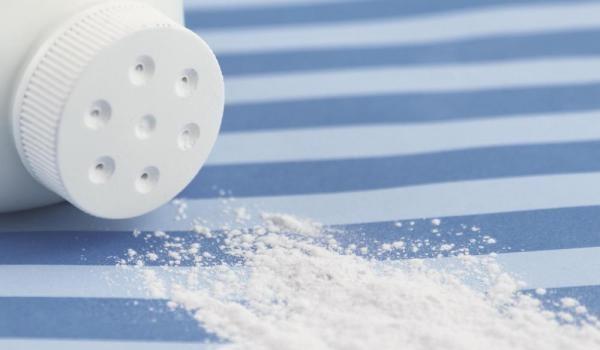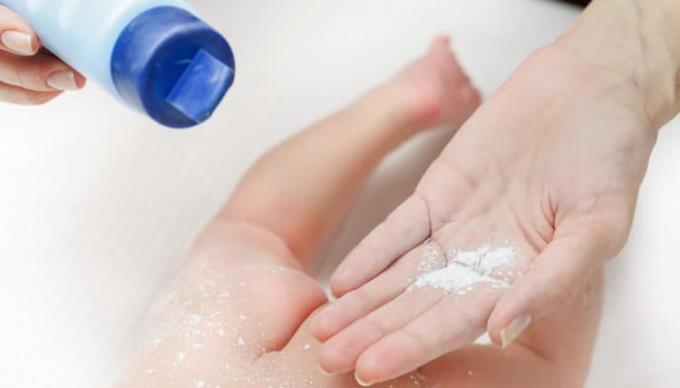The world's largest news agency Reuters recently reported inside Johnson & Johnson's internal documents showing that the company knew that a product of this brand was carcinogenic powder due to asbestos contamination. However, for a long time they kept the above information confidential.
content
Does Johnson & Johnson powder contain toxic asbestos?
Does powder cause cancer, right or wrong?
So how toxic is asbestos?
The Reuters allegation came at a time when J&J was facing thousands of lawsuits over consumer carcinogenic powder products because of its main ingredient is talcum powder.
Does Johnson & Johnson powder contain toxic asbestos?
According to Reuters, Johnson & Johnson (J&J) did not report to the US Food and Drug Administration (FDA) that at least three tests were conducted in 3 different laboratories between 1972 and years. 1975 Asbestos was found in talcum powder.
Data relating to talc contamination of talcum powder found by Reuters are available in a 1957-1958 report. Contaminant descriptive data in talcum powder are fibrous and pointed. It is one of six minerals in the natural fiber form, called asbestos.

Asbestos was found to be the cause of suspicion of cancer causing baby powder
At different times in the early 2000s, studies at J&J, of external labs and J & J's suppliers showed similar results. The report identifies contaminants in talcum powder as asbestos or describes them in terms of commonly applied terms for asbestos.
In 1976, when the FDA was reviewing the limit of asbestos in powdered powder products, J&J confirmed to regulators that there were no toxic asbestos in any of the chalk powder products produced during the period. from December 1972 to October 1973.

However, J&J still insists their products are safe and not dangerous
In fact, at least 3 tests in 3 different laboratories from 1972 to 1975 showed that there was asbestos in its chalk, in one case there was a "quite high" asbestos.
Most J&J internal reports on asbestos testing did not find asbestos. However, while J&J's testing methods have improved and advanced over time, they always have limitations that allow contaminants to go undetected.
And they also test only a very small portion of the company's baby powder products.
Does powder cause cancer, right or wrong?
The World Health Organization (WHO) and other authorities acknowledge there is no safe level of exposure to asbestos. While many people exposed to asbestos never develop cancer.
For some others, however, even a small amount of asbestos is enough to trigger the disease many years later.

Children use chalk, be careful not to risk! Powder with high absorbency, is used by mothers to prevent rash and prevent diaper rash in children. However, some cases of baby powder can cause serious skin allergies in your baby. Even if used incorrectly, powder can also cause pneumonia.
Earlier, in July, J&J was also ordered by a court to pay $ 4.7 billion to 22 women who accused its powder of making them suffer from ovarian cancer.
Most reported that they often use J&J powder products as antiperspirants and deodorants near the genital area. However, Alex Gorsky, CEO of J&J, has pledged that they remain confident their products do not contain toxic asbestos.
So how toxic is asbestos?
When asbestos-containing products are disturbed, small asbestos fibers are released into the air. When you inhale these fibers, they can become trapped in the lungs and stay there for a long time.
Over time, these fibers accumulate, causing scarring and inflammation, affecting breathing, and leading to serious health problems.

Asbestos is really harmful to the health of adults and children
According to the International Agency for Research on Cancer (IARC), there is enough evidence that asbestos in chalk causes mesothelioma (a relatively rare cancer in the thin membranes along the chest and abdomen), lung cancer. , larynx and ovaries.
Although rare, mesothelioma is the most common form of cancer associated with asbestos exposure. Even some studies have shown that asbestos is linked to an increased risk of stomach, throat and colorectal cancers.
Asbestos exposure may also increase the risk of pneumoconiosis (inflammation in the lungs that can cause difficulty breathing, coughing, and permanent lung damage) and other lung and pleural disorders.

Why should be careful when using powder? Many mothers have a habit of using baby powder to apply baby skin every day. Many reasons are given such as chalk to help the baby's body dry, fragrant, prevent rash .... But whether mothers have anticipated the risks of this product?
Using baby powder for diaper rash is a habit when caring for babies by many mothers. However, the American Academy of Pediatrics strongly encourages parents to give up this habit because in reality babies do not need to use powder.
Besides the possibility that powder can cause cancer, it also has many other dangers to the baby. If inhaled, the powder can cause severe lung damage, difficulty breathing, choking, and even death in a newborn.
















